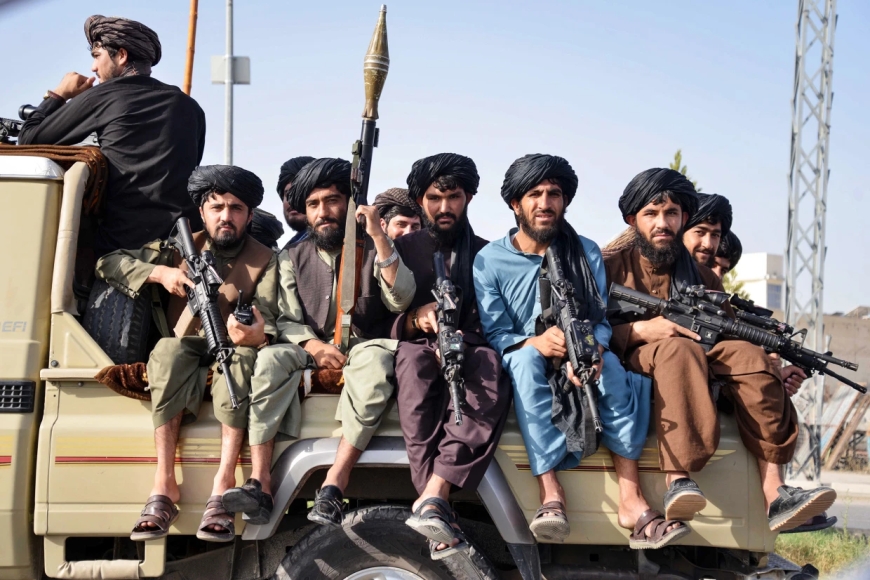Afghanistan’s Nuit Noire: The Taliban’s Tyranny and the Global Community’s Deafening Silence

By: m. Sharifi
Since their dramatic ascension to power the Taliban have strived to construct what they present as a government stable forge diplomatic ties engage in peace talks and ostensibly honor human rights. Yet their claims of legitimacy ring hollow against the stark realities of Afghanistan’s deeply fractured socio-political and economic landscape. Under the guise of governance, the Taliban’s regime has imposed suffocating restrictions plunging the nation into an abyss of repression and discontent while systematically eroding the basic freedoms of its people.
In this bleak milieu the most glaring question arises: why has there been a conspicuous absence of significant protest from the Afghan populace during the Taliban's three-year reign of autocracy? The answer lies within a complex web of religious orthodoxy fractured leadership economic despair and the unyielding iron fist of Taliban rule.
First the deeply ingrained religious and national prejudices within Afghan society serve as both a levier and a piège. The rural majority—constituting nearly 75% of the population—remains steeped in conservative traditions that the Taliban have exploited to justify their draconian policies particularly against women. These entrenched norms rather than being a counterweight have become a pretext for the regime to suppress dissent. Even the urban minority ostensibly more progressive finds itself ensnared by these same societal prejudices enabling the Taliban to enforce restrictions with limited resistance.
Compounding this is the disarray among the nation’s ethnic and political leaders. Historically Afghan leadership has demonstrated a preference for personal or factional interests over solidarité nationale. This fragmentation has repeatedly sabotaged collective action. The infamous collapse of movements such as the Enlightenment Movement underscores how leaders who roused tens of thousands to demand rights ultimately abandoned them for fake pledges whispered by those in power. In this vacuum of leadership the Taliban have wielded the divide et impera strategy with devastating precision exploiting the historical disunity among non-Pashtun communities particularly Hazaras and Shiites to further marginalize them.
Adding to the nation’s plight is Afghanistan’s crumbling economy—a direct consequence of the Taliban’s incompétence in governance. Spiraling unemployment and endemic poverty have left the population preoccupied with mere survival. In a society where securing a loaf of bread consumes all one’s energy the capacity for organized protest is extinguished. This economic despair weaponized by the regime ensures that the populace remains subdued too beleaguered to mount resistance.
But perhaps the most insidious tool in the Taliban’s arsenal is fear. While their patrols may lack the overt visibility of the prior republic their oppressive modus operandi has silenced dissent through terreur implicite. Over the past three years any protestation however minor has been met with brutal reprisals ranging from physical violence to the deprivation of basic rights. This relentless suppression has fostered an atmosphere of silence contraint wherein even the whisper of discontent is stifled by the specter of violent retribution.
Beyond Afghanistan’s borders the international community’s inertia compounds the tragedy. Geopolitical rivalries and intérêts conflictuels among global powers have paralyzed meaningful action. No concerted effort has emerged to unite nations in defense of Afghan human rights. This absence de volonté has emboldened the Taliban whose use of Sharia as a shield for their authoritarian excesses remains unchallenged on the global stage.
In this grim tableau the Afghan people have been robbed of their voice. The Taliban’s regime cloaked in religious orthodoxy and masqué by a pretense of governance has systematically dismantled the nation’s social fabric. What remains is a populace trapped in a cycle of despair an international community mired in complicity and a nation teetering on the precipice of collapse.
The Afghan story under Taliban rule is not merely a tragedy of governance it is an indictment of a world unwilling to act. Will the concert des nations finally muster the resolve to challenge this régime oppressive and restore dignity to the Afghan people? Or will Afghanistan remain a specter vivant of shattered dreams and squandered freedoms? The answer it seems lies shrouded in the brouillard of indifference.













































